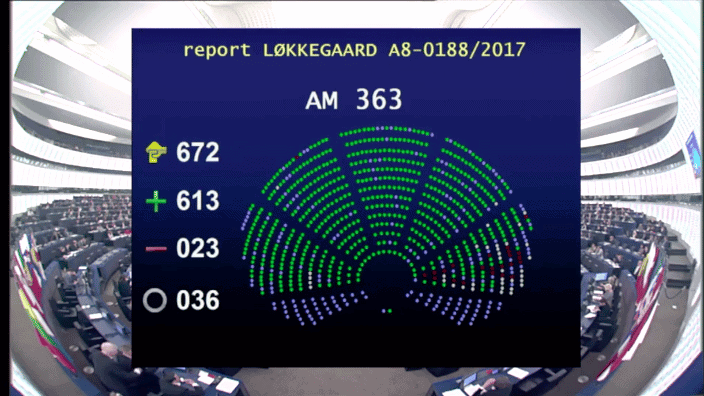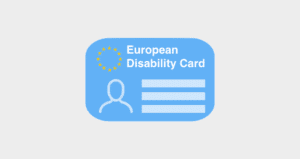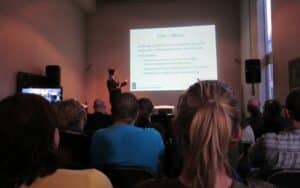Today the European Parliament approved the final version of the European Accessibility Act (EAA). The EAA will soon be approved in the Council of the EU and published in all the EU languages in the Official Journal of the EU. Then, the transposition period of three years on the national level will start. The European Accessibility Act will establish common European accessibility requirements for many digital products and services but will exclude the obligations to make transport, buildings and household appliances more accessible for people with disabilities.
Importantly for the deaf community – the EAA will oblige Member States to make single European emergency number 112 accessible to everyone in the EU. Common accessibility requirements in the EAA will dictate how to make 112 accessible for everyone, including deaf persons, across the EU. This is a milestone achievement, and EUD is particularly excited to see EUD advocacy efforts materialising in the concrete action on the European level. It was one of the main advocacy priorities for EUD since ensuring accessible 112 for the deaf community is vital. Moreover, the EAA will support the public procurement of accessible products and services, and public authorities will be obliged to only procure accessible products, services and facilities.
However, even though the EAA will improve the accessibility of many digital products and services, such as electronic communications services, including for example smartphones, phones and Internet services, computers, operating systems, tablets, TV equipment, access to audio-visual media services, payment terminals or self-service terminals for buying passenger transport tickets, ATMs, banking services, e-commerce websites and mobile apps, e-books and e-readers, it excludes essential areas such as buildings, transport and household appliances. This is a significant flaw of the Act. Moreover, microenterprises providing services are exempt from the requirements of the Act, which also significantly reduces the impact of the Act.
What’s next?
EUD will inform National Associations of the Deaf (NADs) when the European Accessibility Act is published in the Official Journal of the EU so NADs can start the advocacy on the national level during the period of transposition of the EAA into national laws.
We will stay in close contact with NADs and will equip them with tools to make sure that NADs can convince national governments to be ambitious when transposing and implementing the EAA into national legislation so it can bring a meaningful change for deaf persons across the EU.
EUD will collaborate with the European Disability Forum and will make a toolkit on transposition available in International Sign.













